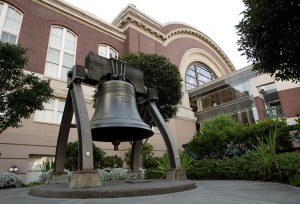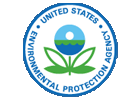FOR IMMEDIATE RELEASE: December 29, 2016
MEDIA CONTACTS:
Jan Hasselman, Earthjustice, 206-343-7340, ext. 1025 jhasselman@earthjustice.org
Chris Wilke, Puget Soundkeeper, 206-297-7002 chris@pugetsoundkeeper.org
WA Supreme Court: Developers Can’t Evade Water Pollution Standards
State high court unanimously overturns Court of Appeals to find that state “vesting” law does not apply to clean water standards
Olympia, WA—In a major victory for clean water, the Washington State Supreme Court today unanimously rejected an effort by counties and developers to weaken a key permit designed to reduced toxic runoff and protect waterways including Puget Sound.
State high court justices ruled unanimously that state “vesting” laws can’t undercut clean water standards that local governments must adopt as part of the federal Clean Water Act and parallel state laws. Under state vesting laws, development projects can apply regulations in place at the time of the project application, even if they are not built for years or even decades later. The vesting laws have been a major impediment to the implementation of critical standards that prevent sprawl and reduce pollution.
Stormwater runoff is a toxic brew of rainwater that drains off streets, parking lots, and other hard surfaces carrying motor oil, pesticides, fertilizers, and other urban residues into nearby streams, rivers, and marine waters. It is the major source of pollution in Puget Sound.
“Today the Washington Supreme Court stood up for clean water,” said Jan Hasselman, Earthjustice attorney who, along with Janette Brimmer, represented Puget Soundkeeper Alliance, Washington Environmental Council, and the Rosemere Neighborhood Association in the case. “Obsolete vesting laws don’t trump clean water, and Washington state will not fall behind in its ability to protect Puget Sound and its rivers and streams.”
In rejecting the arguments by developers that the stormwater permits are subject to vesting laws, and overturning a divided Court of Appeals, the high court justices found that state vesting law is intended to limit the exercise of municipal discretion, not undercut federal and state laws intended to reduce pollution. The high court’s ruling ends nearly a decade of legal wrangling over the Western Washington municipal stormwater permits, which, under a 2008 court ruling, require municipalities to integrate “low impact development” requirements into their development codes.
“We applaud our state’s high court justices for limiting antiquated vesting laws that have represented a roadblock to clean water,” said Chris Wilke, Executive Director of Puget Soundkeeper Alliance. “The days of taking advantage of the vesting loophole are over. It’s time to move ahead with solving the problem of polluted stormwater runoff and recovering Puget Sound along with salmon, orcas and communities that rely on clean water.”
“The ruling by our state’s high court justices is a victory for everyone. Clean water is essential for the health of our communities, to support our vibrant economy, and protect our iconic yet endangered species: salmon and orca,” said Mindy Roberts, Washington Environmental Council’s People for Puget Sound Director.
“We applaud the Washington high court panel for their ruling,” said John Felton, chairman of the Rosemere Neighborhood Association. “The justices gave us a wonderful gift—the gift of supporting clean water by closing harmful loopholes that allowed developers to lock in outdated standards. This is an outstanding way to start the new year!”
Background
Polluted runoff is the single-largest source of toxic pollution to Puget Sound. Thepollution kills salmon, damages shellfish beds and threatens our drinking-water supplies.
Oral argument last October 13th before the state Supreme Court was the culmination of nearly a decade’s worth of effort, starting with the challenge to the 2007 Municipal Stormwater General Permits.
In 2008, in a challenge led by Puget Soundkeeper Alliance represented by Earthjustice, the state Pollution Control Hearings board (PCHB) overturned the state permits, and held that federal and state law required green infrastructure or “low impact development” (LID) approaches to new and redevelopment throughout Western Washington. Green infrastructure, like rain gardens, treats rainfall where it lands, keeping runoff out of the sewers and pollution out of Puget Sound. It is a highly effective, and cost-effective, approach to managing toxic runoff.
The 2012 permit–which made LID mandatory in Western Washington for the first time–was issued after several years of technical and policy input from stakeholders, but was appealed by regulated municipalities and developers. Puget Soundkeeper, WEC, and Rosemere Neighborhood Association, again represented by Earthjustice, intervened to defend the permits.
In 2013, the PCHB rejected all of those legal challenges, and upheld the permit. King County, Snohomish County, and the Building Industry Association of Clark County sought appellate review of that decision on a single issue: whether the state vesting law allows developers to “lock in” outdated development standards for all time. The PCHB had comprehensively ruled that standards issued under a stormwater permit are not subject to state vesting law.
Last January, in a surprise 2-1 decision, the state Court of Appeals Division II, reversed the PCHB on the vesting issue. It concluded that requirements to implement LID designs and other critical standards to protect water were “land use ordinances” subject to state vesting laws.
Today, the state Supreme Court unanimously rejected the Court of Appeals Division II ruling and reinstated the PCHB decision, holding that the requirements of a state water pollution permit are not subject to state vesting law. The decision settles a dispute that has spanned nearly a decade and provides a platform for Ecology to further improve water pollution technologies in the next iteration of permit expected in 2018.
You can download a pdf version of this Press Release here: Earthjustice Stormwater Vesting WA Supremes Win Final Press Release
Read the full Supreme Court Opinion here: Supreme Court No. 92805-3 – Snohomish County, et al., v. Pollution Control Hearings Board, et al Opinion












![Washington State Water Quality Assessment [303(d)] Washington State Department of Ecology](http://www.rosemerena.org/home/wp-content/uploads/2009/03/ecy_logo.gif)

